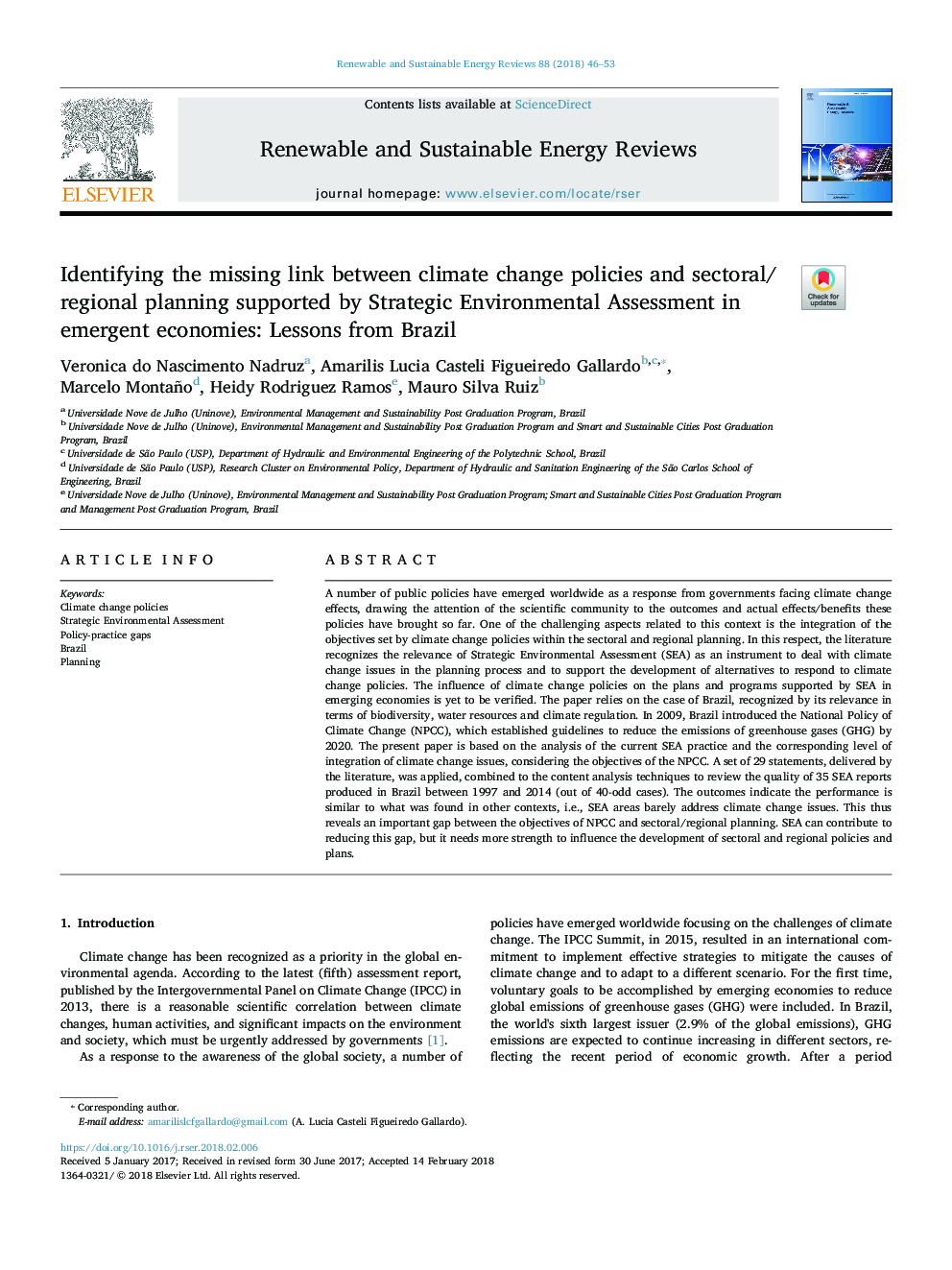| کد مقاله | کد نشریه | سال انتشار | مقاله انگلیسی | نسخه تمام متن |
|---|---|---|---|---|
| 8111443 | 1522296 | 2018 | 8 صفحه PDF | دانلود رایگان |
عنوان انگلیسی مقاله ISI
Identifying the missing link between climate change policies and sectoral/regional planning supported by Strategic Environmental Assessment in emergent economies: Lessons from Brazil
ترجمه فارسی عنوان
شناسایی پیوند گم شده بین سیاست های تغییر آب وهوایی و برنامه ریزی بخش / منطقه ای که توسط ارزیابی محیطی استراتژیک در اقتصادهای نوظهور پشتیبانی می شود: درس های برزیل
دانلود مقاله + سفارش ترجمه
دانلود مقاله ISI انگلیسی
رایگان برای ایرانیان
کلمات کلیدی
سیاست های تغییر آب و هوا، ارزیابی محیطی استراتژیک، خط مشی-عمل شکاف، برزیل، برنامه ریزی،
موضوعات مرتبط
مهندسی و علوم پایه
مهندسی انرژی
انرژی های تجدید پذیر، توسعه پایدار و محیط زیست
چکیده انگلیسی
A number of public policies have emerged worldwide as a response from governments facing climate change effects, drawing the attention of the scientific community to the outcomes and actual effects/benefits these policies have brought so far. One of the challenging aspects related to this context is the integration of the objectives set by climate change policies within the sectoral and regional planning. In this respect, the literature recognizes the relevance of Strategic Environmental Assessment (SEA) as an instrument to deal with climate change issues in the planning process and to support the development of alternatives to respond to climate change policies. The influence of climate change policies on the plans and programs supported by SEA in emerging economies is yet to be verified. The paper relies on the case of Brazil, recognized by its relevance in terms of biodiversity, water resources and climate regulation. In 2009, Brazil introduced the National Policy of Climate Change (NPCC), which established guidelines to reduce the emissions of greenhouse gases (GHG) by 2020. The present paper is based on the analysis of the current SEA practice and the corresponding level of integration of climate change issues, considering the objectives of the NPCC. A set of 29 statements, delivered by the literature, was applied, combined to the content analysis techniques to review the quality of 35 SEA reports produced in Brazil between 1997 and 2014 (out of 40-odd cases). The outcomes indicate the performance is similar to what was found in other contexts, i.e., SEA areas barely address climate change issues. This thus reveals an important gap between the objectives of NPCC and sectoral/regional planning. SEA can contribute to reducing this gap, but it needs more strength to influence the development of sectoral and regional policies and plans.
ناشر
Database: Elsevier - ScienceDirect (ساینس دایرکت)
Journal: Renewable and Sustainable Energy Reviews - Volume 88, May 2018, Pages 46-53
Journal: Renewable and Sustainable Energy Reviews - Volume 88, May 2018, Pages 46-53
نویسندگان
Veronica do Nascimento Nadruz, Amarilis Lucia Casteli Figueiredo Gallardo, Marcelo Montaño, Heidy Rodriguez Ramos, Mauro Silva Ruiz,
